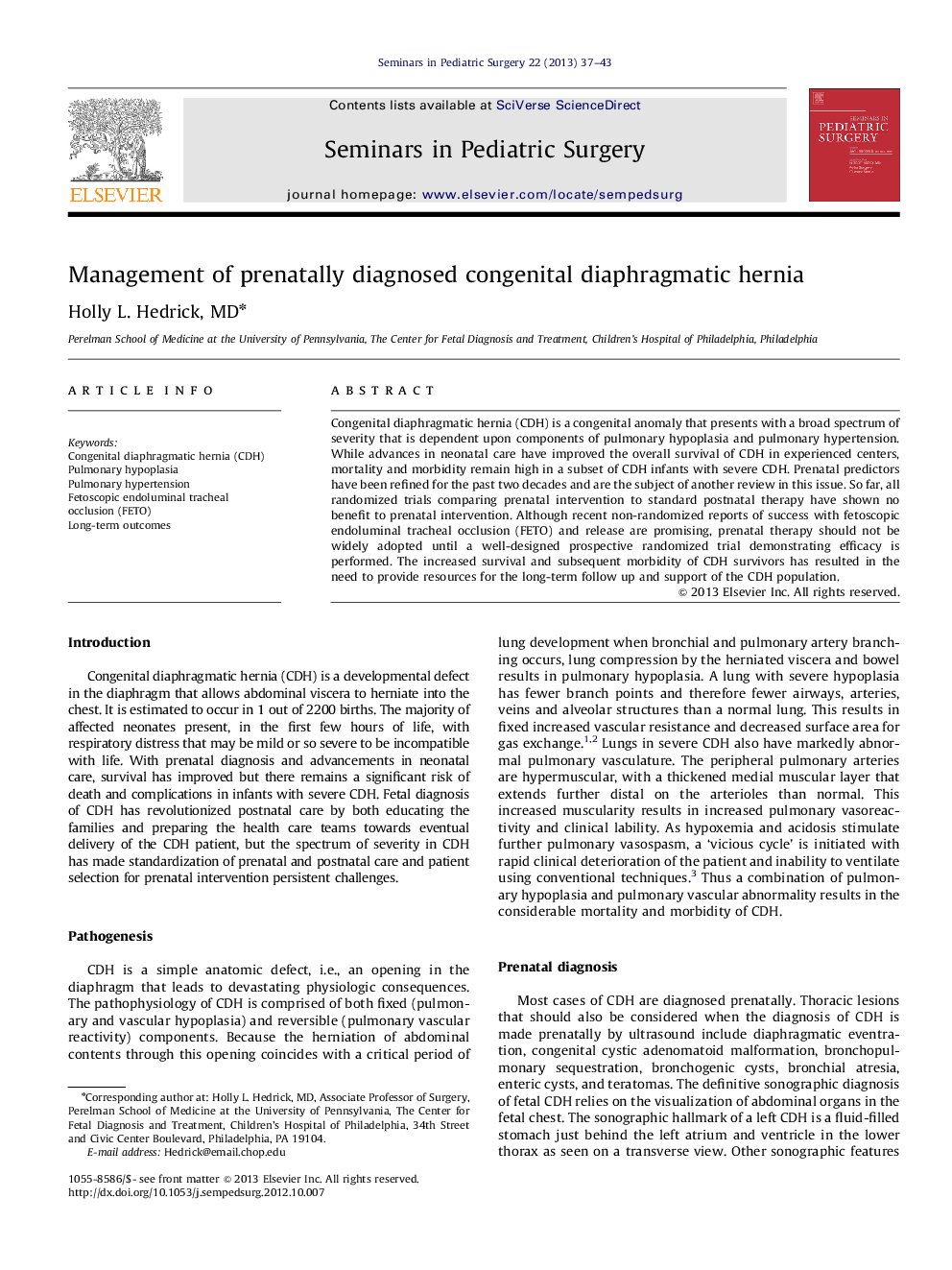| Article ID | Journal | Published Year | Pages | File Type |
|---|---|---|---|---|
| 4176644 | Seminars in Pediatric Surgery | 2013 | 7 Pages |
Congenital diaphragmatic hernia (CDH) is a congenital anomaly that presents with a broad spectrum of severity that is dependent upon components of pulmonary hypoplasia and pulmonary hypertension. While advances in neonatal care have improved the overall survival of CDH in experienced centers, mortality and morbidity remain high in a subset of CDH infants with severe CDH. Prenatal predictors have been refined for the past two decades and are the subject of another review in this issue. So far, all randomized trials comparing prenatal intervention to standard postnatal therapy have shown no benefit to prenatal intervention. Although recent non-randomized reports of success with fetoscopic endoluminal tracheal occlusion (FETO) and release are promising, prenatal therapy should not be widely adopted until a well-designed prospective randomized trial demonstrating efficacy is performed. The increased survival and subsequent morbidity of CDH survivors has resulted in the need to provide resources for the long-term follow up and support of the CDH population.
